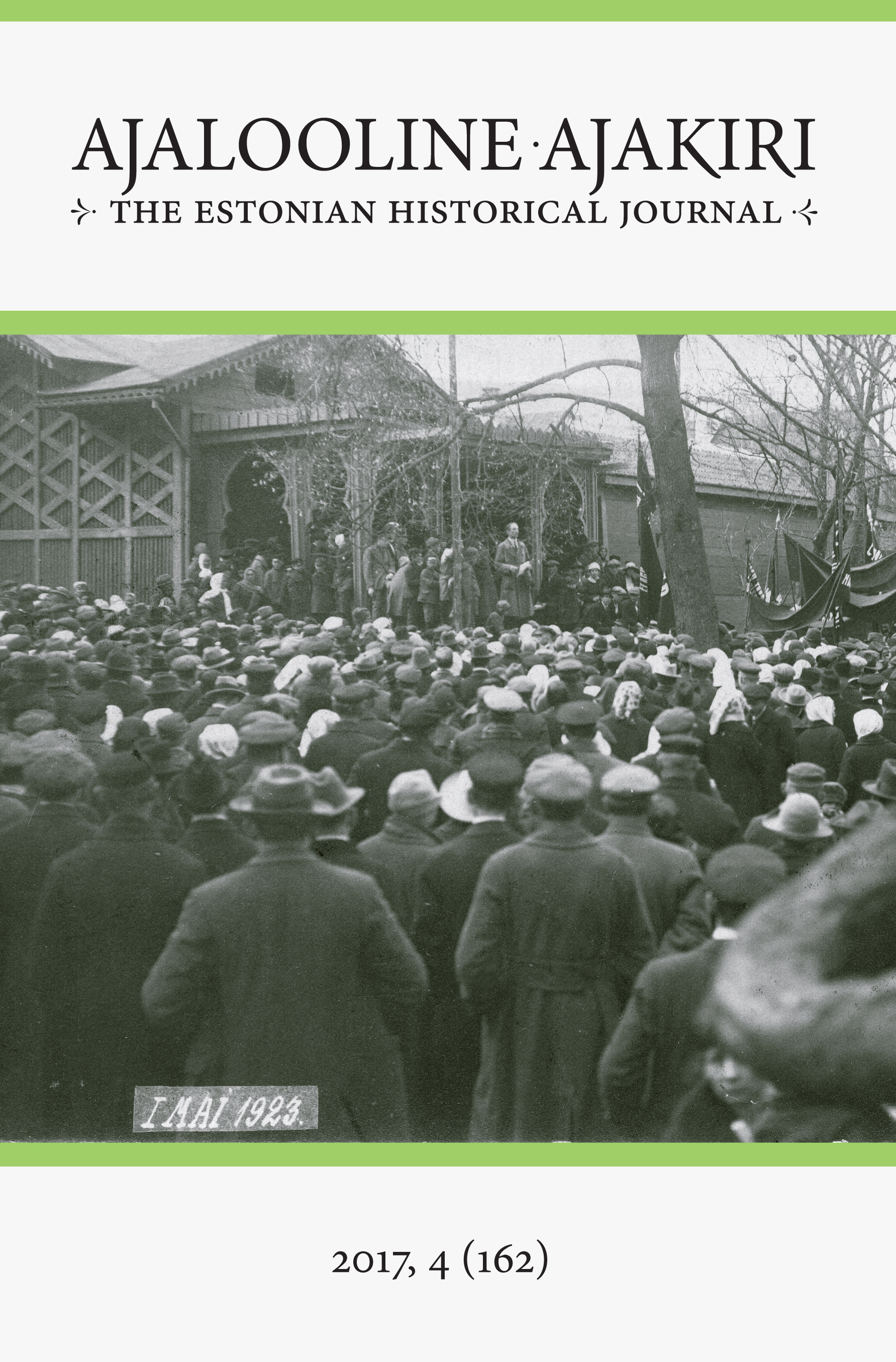Kas aeg on liigestest lahti? Uuemad arutelud aja üle ajaloos ja ajaloofilosoofias [Abstract: Is time out of joint? Recent discussions on time in history and the philosophy of history]
DOI:
https://doi.org/10.12697/AA.2017.4.03Keywords:
history and theory, temporality, Reinhart Koselleck, modernism, presentism, phenomenologyAbstract
The core aim of this article is to provide an overview of the recent contemporary interest in temporality in the humanities by scrutinizing the thesis that during the last few decades, the modern understanding of time, and in particular the idea of the distinctiveness of the categories of past, present, and future, is no longer feasible and thus requires reconsideration. Authors of the new paradigm claim that instead of a past that is separate from the present, we now are increasingly facing a past that has become a significant part of the present. With respect to the future, it is often claimed that instead of seeing our future as a bright horizon of improvement and progress, we are now confronting a future that appears as a threat and a menace. On closer examination, the discussion on temporality concerns transformations of Western cultural and political life more generally, as well as the foundations of academic disciplines working on matters of the past. Interestingly, recent trends in the philosophy of history also testify to growing interest in issues regarding time, particularly the relationship between past and present. The paper consists of four parts. The first part sheds light on the diverse terminology that different authors such as Reinhart Koselleck, François Hartog, Aleida Assmann, and Hans Ulrich Gumbrecht employ in examining temporality. It also illustrates the broad scope of empirical material that such research can be based upon. The second part focuses on explaining the core premises of the modernist idea of time by drawing primarily on Reinhart Koselleck, who has famously argued that the modern developmental vision of history, which according to him sustains both the discourse of progress and modern historical thinking, took root during the period he has labelled Sattelzeit. The third part of the paper explicitly focuses on the widespread idea that the modernist, future-oriented concept of time no longer holds and is therefore in need of reinterpretation. Among others, the discussion includes Hartog’s hypothesis of the rise of the presentist regime of historicity manifested, for example, by the contemporary preoccupation with memory and heritage. Furthermore, it is shown that as attitudes towards the past diversify, the modernist assumption of the past as separate from the present is rendered questionable. This in turn has lead scholars to work out alternative conceptions of time that could do justice to the past that refuses to let go of the present. Berber Bevernage’s ideas are mentioned as an example of an author who has taken steps in this direction. Ultimately, the idea is articulated that insofar as the status of the past proves to be increasingly ambivalent, the foundations of academic history also become questionable. In relation to that, many have argued that the rise of memory studies is another sign of the current tendency to rearticulate the relationship between past and present within historical studies. In the fourth and final part of the paper, some recent attempts to rearticulate the relationship between past and present in the philosophy of history are scrutinized. Particularly, the outlines of two philosophical projects, those of Eelco Runia and David Carr, are sketched. Most importantly, it is shown that both authors aim to go beyond the framework of representation – a dominant trend in the field within the last couple of decades – by introducing ways the past can be experienced as something real and directly given. In wrapping up the results, it is observed that based on the recent literature, diverse and multifaceted interest in the subject of time and temporality can be identified that shapes some of the most important contemporary discussions in the humanities.Downloads
Download data is not yet available.
Downloads
Published
2018-03-20
Issue
Section
Historiograafilised ülevaated / Historiographical Reviews

